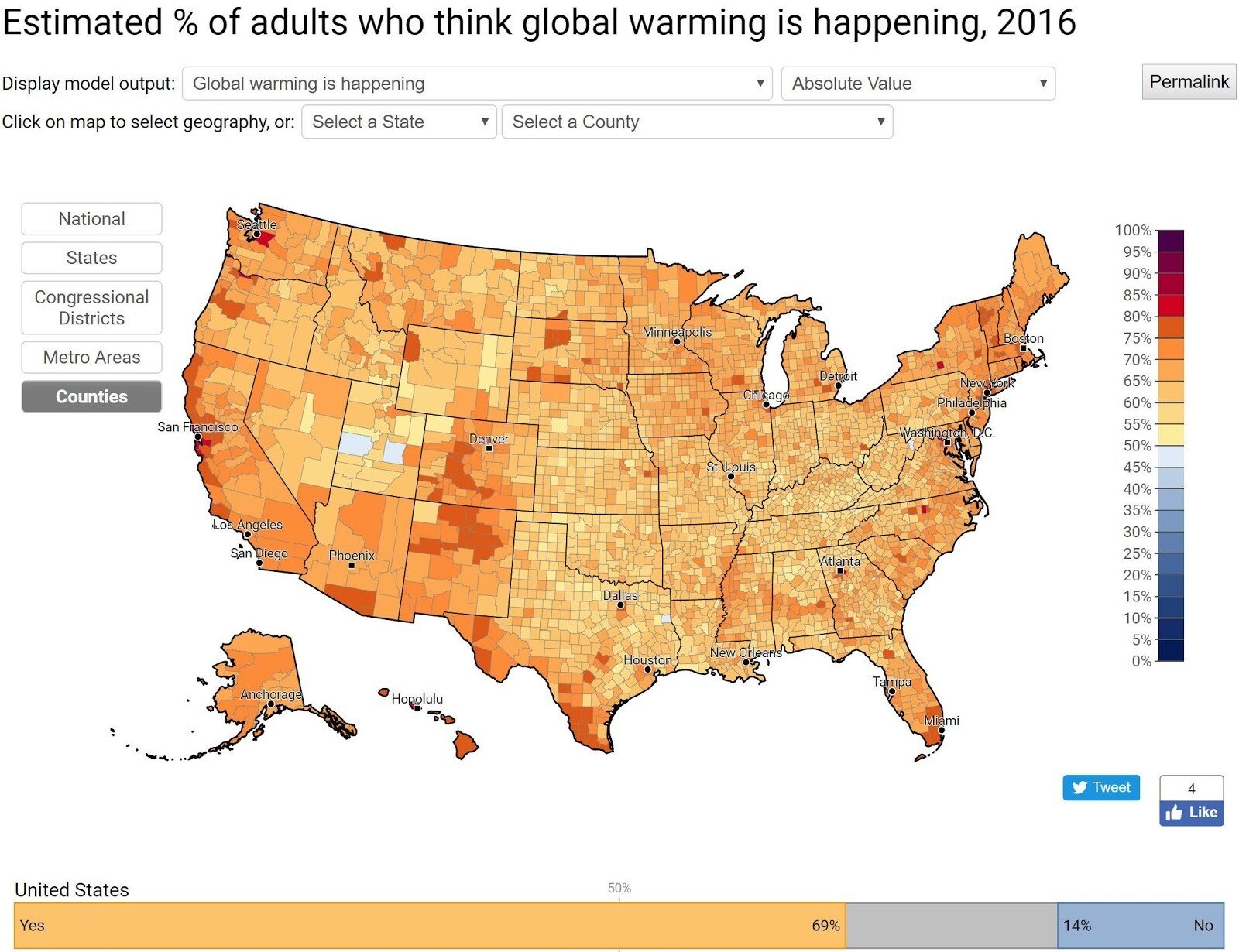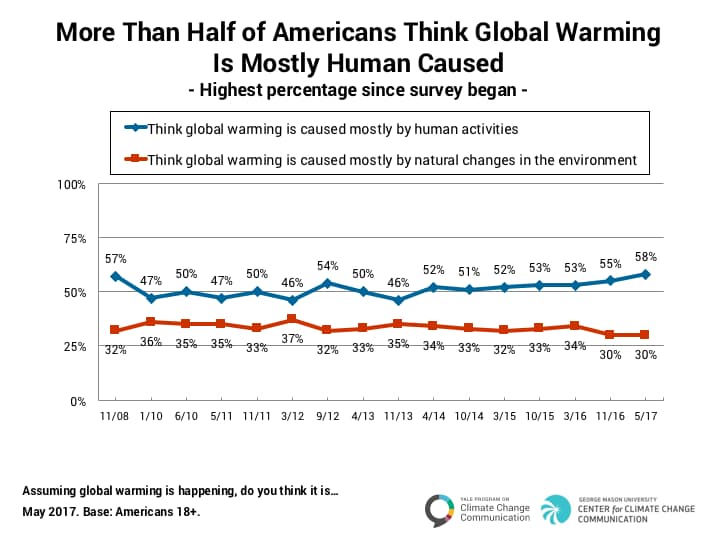The solution to climate change will be forged in our universities

Thinking ahead … universities are key to humanity's biggest battle – from educating leaders to fostering ground-breaking research.
Image: Reuters/Stephen Lam
Stay up to date:
Climate Crisis
To address climate change, the 2015 Paris Agreement aims to limit the rise in global temperature to below 2 degrees Celsius. A recent study, however, found that our planet might well exceed that threshold by the end of the century. Other evidence shows that, even if there were no additional fossil-fuel emissions, the planet would likely still warm by over 1 degree Celsius. These are dire predictions, but the fight for our future is not over. We must act now to mitigate climate change, which threatens public health, the global economy, agricultural yields, social equality and many other aspects of life on earth.
Addressing this crisis will require broad-based efforts and wide-ranging expertise: government, business, non-profit and academic leaders must all collaborate in “creating a shared future in a fractured world” – the theme of the 2018 World Economic Forum Annual Meeting.
Universities can be valuable partners in these efforts. Home to groundbreaking research, dynamic educational programs and forums for convening diverse experts, universities are uniquely positioned to help us understand and mitigate climate change and build a more sustainable future.
New knowledge is essential to understanding and countering the effects of climate change, including the development of cleaner energy, greener farming and methods to trap carbon dioxide. Scientists, of course, are leading the charge to analyze the extent of global warming and how humans contribute to it. Intellectuals in other fields are deeply engaged in illuminating the extent of the problem and discovering solutions, such as shaping public policy; studying beliefs and behaviours and changing social and economic structures; and finding the best methods for communicating and educating communities.
A successful approach to combatting global warming and other consequences of climate change will require insight and expertise across disciplines. The Yale-led Environmental Performance Index (EPI), for example, brings together environmental and data scientists, economists, policymakers and legal specialists, in collaboration with other universities, foundations and the World Economic Forum. The EPI provides a global view of environmental performance, ranking countries in terms of their protection of human health and ecosystems. EPI data can yield valuable observations, such as the climate impact of selected top carbon-emitting countries.

Universities are taking interdisciplinary research beyond the campus to engage with communities on climate change issues. For example, the Cornell Institute for Climate Smart Solutions is helping farmers cope with the potential negative effects of climate change by providing online decision tools and other resources. The Yale Program on Climate Change Communication surveys public attitudes toward climate change information. Their findings help legislators, policymakers, educators and the media craft more effective messages about this vital topic.

Through Stanford University’s Climate Change Education project, scientists and educators developed a curriculum for teaching children about climate change in middle and high schools in the San Francisco area. Tsinghua University in Beijing and the Massachusetts Institute of Technology are working together on the China Energy and Climate Project to study policy in China and improve the management of climate change.
Across campuses worldwide, promising new research is yielding insights into a host of climate-related topics: energy consumption, food security, extreme weather events, ecosystem adaptation, human health and more. At this key moment, it is critical that governments increase funding for research and development for universities. Throughout much of the 20th century, universities have been major engines of discovery, and we cannot afford to fall behind now.
All our students will face a world transformed by climate change. Educators have an obligation to prepare them for overcoming this immense challenge.
Universities are ideal environments for incubating world-changing ideas. As an example of this, the 2011 Wendy Schmidt Oil Cleanup X Challenge prize – with an award of $1 million – was given to a company that developed oil-spill recovery equipment based on a design created by a graduate student at the University of California, Santa Barbara.
Regardless of whether a student project will turn into technology that will be used in the field, hands-on education – in partnerships that reach beyond campuses – is crucial for engaging students, and introducing them to the important work they might do after graduation. It is essential that we teach students to communicate ideas, gain support from peers and investors, and – more importantly – learn the value of solving social, technological and scientific challenges, like climate change, through innovative thinking and interdisciplinary collaborations.
Students are our best hope for creating a more sustainable future. Giving them opportunities to think critically and gain climate-related expertise is an important investment in developing the next generation of our planet’s policymakers and leaders.
In realizing the research and educational missions of universities, campuses also serve as “living laboratories” for new ideas, demonstrating to others how to create a more sustainable future.
In 2015, Yale University piloted a carbon charge programme. Putting a price on carbon could be a powerful incentive to reduce greenhouse gas emissions. Now in place across its campus, Yale’s carbon charge – among the first of its kind in higher education – works by billing each administrative unit within the university for its building-related carbon emissions. The programme applies to 250 buildings across the 345-acre campus. Other institutions, such as Princeton University and Swarthmore College, have implemented different forms of internal carbon pricing.
Yale was also the first university to join the Carbon Pricing Leadership Coalition, a global consortium of government, private sector, academic and non-profit organizations dedicated to using carbon pricing to reduce greenhouse gas emissions. As early adopters of carbon pricing, the university hopes its research will help other institutions interested in internal carbon pricing and emissions reduction. Yale is already beginning to share lessons from the pilot study.
Universities have an opportunity – and a responsibility – to make sustainability a centerpiece of research and education on campuses.
Universities depend on the free and open exchange of ideas. A commitment to free expression is one of the hallmarks and strengths of American higher education. As neutral forums where diverse ideas are heard and debated, campuses can launch important conversations about climate change.
In April 2017, Peking University hosted Erna Solberg, the prime minister of Norway, for a discussion about sustainability and how globalization can be managed while protecting the environment. Meanwhile, former US secretary of state John Kerry convened a nonpartisan conference at Yale University in September 2017, to set an agenda on climate change action.

Thousands of Yale students, faculty members, staff and alumni heard from former US secretary of state James Baker, California governor Jerry Brown, World Bank Group president Jim Yong Kim and actor and environmental advocate Leonardo DiCaprio, along with CEOs and top policymakers.
According to a recent survey conducted by Yale and George Mason University, seven in 10 Americans think global warming is happening. And more than half of Americans (58 percent) believe climate change is mostly human caused – the highest level of support for the theory since the survey began in 2008.

However, much remains to be done to educate the public and focus our intellectual resources on developing solutions to address climate change.
Universities can play a significant role in these efforts. As diverse intellectual communities, they can bridge disciplinary divides by encouraging collaborations among experts in different fields. They can inspire and empower young people, preparing them for a future reshaped by climate change. They can experiment with new ideas, and they can serve as forums for discussion and debate, fostering meaningful conversations about these issues.
In a world increasingly marked by polarization and disagreement, universities can help forge consensus and promote collaboration around shared goals. We can match our academic strengths with local and global engagement on climate change issues – and help create the shared world we all wish to see.
Don't miss any update on this topic
Create a free account and access your personalized content collection with our latest publications and analyses.
License and Republishing
World Economic Forum articles may be republished in accordance with the Creative Commons Attribution-NonCommercial-NoDerivatives 4.0 International Public License, and in accordance with our Terms of Use.
The views expressed in this article are those of the author alone and not the World Economic Forum.
Related topics:
Forum Stories newsletter
Bringing you weekly curated insights and analysis on the global issues that matter.
More on Climate ActionSee all
Jean-Claude Burgelman and Lily Linke
June 18, 2025
David Elliott
June 18, 2025
Georgina Mondino and Maximiliano Frey
June 18, 2025
Naoko Tochibayashi and Mizuho Ota
June 18, 2025
Gaurav Ghewade
June 17, 2025
Lindsay Hooper
June 16, 2025





